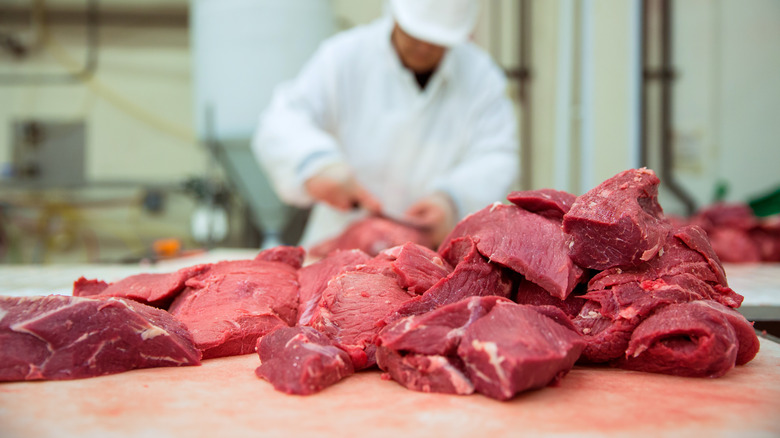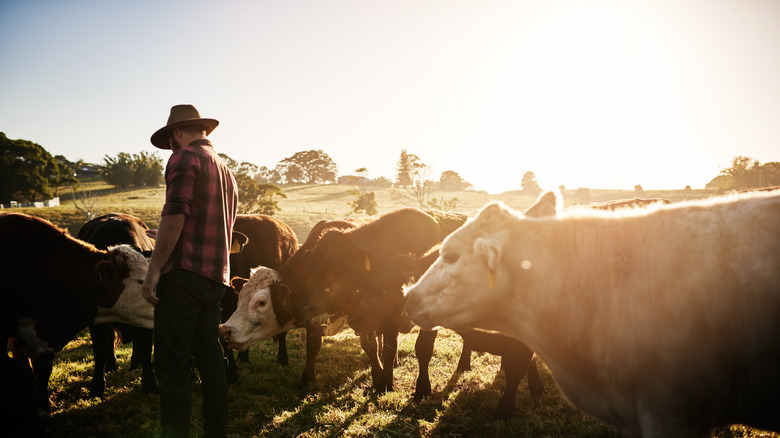Why Costco Shoppers Don't Need To Worry About A Permanent USDA Prime Beef Shortage
If you've seen speculation that Costco won't carry prime beef anymore, don't let these internet rumors steer you into a panic. A September 28 Reddit thread re-sparked an ongoing concern that Costco is essentially discontinuing USDA prime beef indefinitely. The original poster claimed that in their search for prime brisket, the meat manager for the Chula Vista, CA Costco location told them, in the poster's words, "they don't carry it anymore and don't plan on carrying prime anywhere in the region anymore." Multiple commenters corroborated that prime beef has been absent from their Costco coolers for months, with no sign of return. But for those who are ready to cut up their Costco cards, take a breath. This is the effect of a beef shortage, not a new Costco policy against prime steak cuts.
Daily Meal's request for comment from Costco hasn't been answered as of this writing. But it's likely that this is a matter of supply — and, subsequently, the price hikes that come with high demand, low supply economics. A Reddit commenter with a decade of experience in both Costco corporate and in the warehouses confirmed that Costco will "temporarily stop carrying items if the price is rising way too much in order to stock other items that represent better value/quality ratio."
Depending on the market, certain Costco locations will have it in stock and others won't. Another member noted that prime brisket finally came back into stock in Ohio, for example. It's all a matter of supply.
What's driving beef prices up?
The beef shortage isn't new news. From the end of 2022, the market has been expecting a shortage of beef. Prolonged droughts in Texas, Kansas, Nebraska, and Oklahoma have been particularly hard on herds in these major dbeef-producing states. And a significant drop in the price per head has put roughly half a million ranches out of business since the '80s. There are just fewer cattle out there — the smallest total herd since 1962. Smaller herds mean fewer cuts of beef at the grocery store.
Beef prices started to rise steadily during the COVID-19 pandemic, hitting a 40% rise in wholesale price (with a 70% increase for certain cuts of steak.) This was a factor of supply chains, shutdowns from outbreaks, and restrictions. Beyond that, an increase in the price of commodities that go into cattle ranching also flows downstream to grocery store tags. Issues such as Russia's war in Ukraine, have affected the global supply chain of corn and wheat (cattle feed) and increased fuel costs. And the four main meatpacking conglomerates — Tyson Foods, Cargill, JBS, and National Beef — saw record profits during that time, even as consumer budgets are stretched and ranchers are losing money on their herds.
Even if these problems were magically solved tomorrow, it would still take years to raise cattle herds back to good supply. As long as the supply is down and prices stay this high, that prime beef could still be hard to find at Costco.

